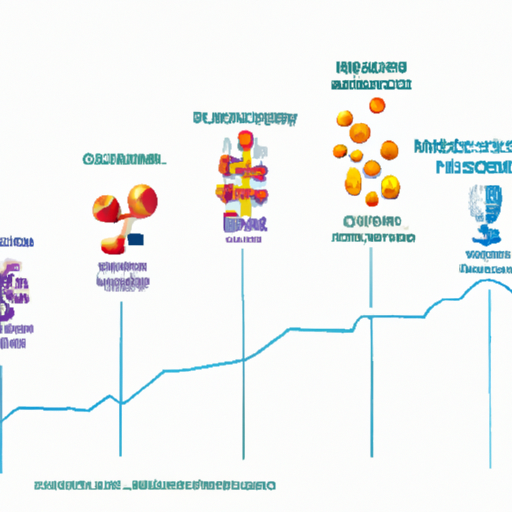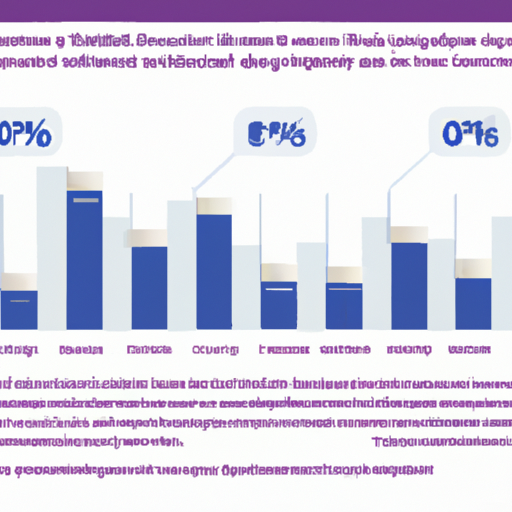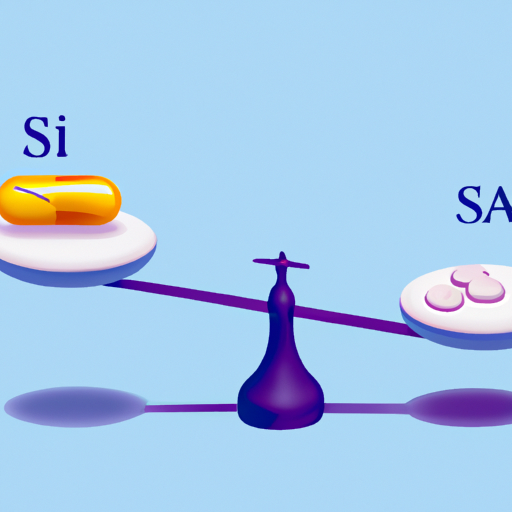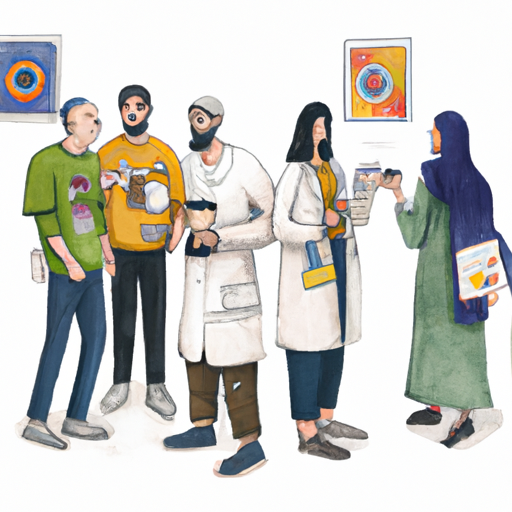This blog post delves into the world of specialty pharmaceutical companies and their profound impact on modern medicine. It explores how these niche firms have revolutionized treatment protocols, contributed to medical advancements, and continue to shape the future of healthcare.
"The Rise of Specialty Pharmaceutical Companies: An Unforeseen Evolution?"
The landscape of modern medicine has witnessed a remarkable evolution with the rise of specialty pharmaceutical companies. These companies, often focused on developing drugs for specific diseases or conditions, have emerged as key players in the pharmaceutical industry. While traditional pharmaceutical companies have traditionally focused on producing drugs for common ailments, specialty pharmaceutical companies have carved out a niche by developing treatments for rare diseases, complex conditions, and niche markets. This evolution has been both unexpected and transformative, reshaping the way we approach healthcare and opening new avenues for innovation. As we delve into the impact of specialty pharmaceutical companies on modern medicine, it becomes clear that their rise is not just a coincidence, but a response to the unmet medical needs of society. These companies have emerged as pioneers in addressing gaps in treatment options for patients who had previously been left without viable options. Through their research and development efforts, specialty pharmaceutical companies have brought to market breakthrough drugs that have revolutionized treatment for previously untreatable diseases. This has not only improved patient outcomes but has also provided hope to individuals and families who were previously facing bleak prognoses. The rise of specialty pharmaceutical companies has been driven by a combination of scientific advancements, increased understanding of disease mechanisms, and the growing demand for personalized medicine. As our understanding of diseases has deepened, it has become evident that a one-size-fits-all approach to treatment is often insufficient. Specialty pharmaceutical companies have recognized this need and have focused their efforts on developing targeted therapies that address the specific needs of individual patients. In doing so, they have introduced a new era of precision medicine, where treatments are tailored to the unique characteristics of each patient. This personalized approach has the potential to revolutionize healthcare by maximizing efficacy and minimizing side effects.

An illustration showing the growth trajectory of specialty pharmaceutical companies over the years
Why Are Specialty Drugs So Costly? An Economic Perspective
The high cost of specialty drugs has been a topic of intense debate and scrutiny. From an economic perspective, several factors contribute to the exorbitant prices of these medications. Firstly, the research and development process for specialty drugs is often complex and lengthy, requiring significant investments in scientific research, clinical trials, and regulatory approvals. This extensive process, coupled with the high failure rates in drug development, drives up the costs of successful drugs. Additionally, specialty drugs are often developed for rare diseases or niche markets, resulting in smaller patient populations. This limited market size reduces economies of scale, making it challenging for manufacturers to recoup their investments.
Furthermore, specialty drugs are often highly specialized and require advanced manufacturing techniques and technologies. The production of these drugs may involve complex biotechnology processes, such as gene therapy or cell-based therapies, which require specialized facilities and expertise. These factors contribute to higher production costs, which are ultimately passed on to consumers.
Another key factor contributing to the high cost of specialty drugs is the pricing power of pharmaceutical companies. Due to limited competition and the absence of generic alternatives, manufacturers can set higher prices for their products. Additionally, the complex reimbursement systems and negotiation processes between pharmaceutical companies, insurers, and government agencies further complicate pricing dynamics.
Finally, the cost of specialty drugs is influenced by the value they provide to patients. These medications often offer significant clinical benefits, such as improved survival rates or quality of life, for patients with serious or life-threatening conditions. Manufacturers argue that the high prices reflect the value and benefits that these drugs offer to patients and society.
Revolutionizing Treatment: The Impact of Specialty Drugs on Patient Outcomes
Specialty drugs have revolutionized the landscape of modern medicine, profoundly impacting patient outcomes. These medications are specifically designed to target complex and often rare diseases that were previously untreatable or had limited treatment options. The introduction of specialty drugs has brought new hope to patients and has significantly improved their quality of life.
One of the key ways in which specialty drugs have transformed patient outcomes is by providing more personalized treatment options. These medications are often tailored to the specific genetic or molecular characteristics of a patient's disease. This personalized approach allows for targeted therapy, maximizing the effectiveness of treatment while minimizing side effects. Patients who were once faced with limited treatment options now have access to medications that can directly address the underlying mechanisms of their condition.
Additionally, specialty drugs have played a vital role in extending and improving the lives of patients with serious illnesses. For example, in the field of oncology, specialty drugs have revolutionized cancer treatment by targeting specific genetic mutations or pathways within tumors. This targeted therapy approach has led to higher response rates, increased survival rates, and better overall outcomes for patients.
Moreover, specialty drugs have also been instrumental in managing chronic diseases such as autoimmune disorders or rare genetic conditions. These medications can effectively alleviate symptoms, reduce disease progression, and improve patients' overall well-being. Patients who were once burdened by debilitating symptoms and limited treatment options now have access to medications that can significantly improve their daily lives.
Furthermore, the impact of specialty drugs extends beyond the individual patient level. By improving patient outcomes, these medications can reduce the burden on healthcare systems. Patients who respond well to specialty drugs may require fewer hospitalizations, emergency room visits, or expensive interventions. This not only improves the quality of care but also reduces healthcare costs in the long run.

Infographic demonstrating the improvement in patient outcomes due to the application of specialty drugs
"Are Specialty Drug Manufacturers the Unsung Heroes in Treating Rare Diseases?"
Specialty drug manufacturers often go unnoticed in the grand scheme of healthcare, but they play a crucial role in treating rare diseases. These companies invest significant resources into researching and developing medications specifically for conditions that affect only a small number of individuals. These rare diseases often have limited treatment options, making the work of specialty drug manufacturers even more vital. Through their dedication and innovation, these companies are the unsung heroes in providing hope and improved quality of life for patients with rare diseases.
Specialty drug manufacturers face unique challenges in developing medications for rare diseases. Due to the limited patient population, the financial incentives for research and development may be lower compared to more common conditions. However, these companies recognize the importance of addressing the unmet medical needs of these patients and the impact their medications can have on their lives. They commit themselves to finding solutions and navigating the complexities of developing drugs for rare diseases.
In many cases, specialty drug manufacturers work closely with patient advocacy groups and medical communities to better understand the needs of patients with rare diseases. They collaborate to gather insights, share knowledge, and ensure that the development of new medications is aligned with the specific challenges faced by these patients. This close collaboration allows for a patient-centered approach in the development of drugs, ensuring that the medications meet the unique requirements and preferences of the patient population.
Furthermore, specialty drug manufacturers often provide support services beyond just the medication itself. They offer patient assistance programs, educational resources, and access to specialized healthcare professionals who understand the intricacies of managing rare diseases. These additional services go a long way in helping patients navigate the complexities of their conditions and improve their overall well-being.
Balancing Act: The Trade-off Between Innovation and Accessibility
In the world of specialty pharmaceutical companies, a delicate balancing act exists between innovation and accessibility. While these companies strive to push the boundaries of medical advancements and develop groundbreaking treatments, the high costs associated with specialty drugs often pose challenges when it comes to patient access and affordability.
- 1. The Cost of Innovation:
Research and development for specialty drugs often requires substantial investments of time, resources, and expertise. These drugs are often highly complex and tailored to specific conditions, making their development costly. The investments made by specialty drug manufacturers are essential for driving innovation and bringing forth new treatment options for patients. However, the high costs associated with research and development must ultimately be recovered, leading to higher prices for these medications. - 2. Access and Affordability:
The high cost of specialty drugs raises concerns about patient access and affordability. Many of these medications are life-changing for patients with rare diseases, but the steep price tags can limit their availability. Some patients may struggle to afford these drugs, leading to barriers in accessing the treatment they desperately need. This trade-off between innovation and accessibility highlights the need for a careful balance to ensure that patients have access to these groundbreaking treatments without facing financial hardship. - 3. Finding Solutions:
The healthcare industry is continuously searching for ways to strike a balance between innovation and accessibility. Efforts are being made to develop alternative pricing models, such as value-based pricing, that take into account the clinical benefits and outcomes provided by specialty drugs. Additionally, collaborations between pharmaceutical companies, payers, and policymakers are being fostered to explore solutions that ensure equitable access to these medications.

An image of a balanced scale, symbolizing the trade-off between innovation and accessibility in specialty pharmaceuticals
"Are Specialty Drugs Shaping the Future of Healthcare?"
Specialty drugs are undeniably shaping the future of healthcare in profound ways. These innovative medications are revolutionizing treatment options and transforming the landscape of modern medicine.
לפרטים נוספים בנושא של Exploring the Impact of Specialty Pharmaceutical Companies on Modern Medicine באפשרותך לבדוק ב- truemedtx.com
- 1. Targeted Therapies:
Specialty drugs often consist of targeted therapies that are tailored to specific diseases or conditions. Unlike traditional medications, which may have a broader scope of action, specialty drugs focus on precise molecular targets, allowing for more effective and personalized treatments. This targeted approach not only improves patient outcomes but also reduces the risk of adverse side effects. - 2. Advancements in Precision Medicine:
Precision medicine, an emerging field that takes into account individual variability in genes, environment, and lifestyle, is greatly influenced by specialty drugs. These medications are designed to address the unique characteristics of a patient's disease or condition, taking into account factors such as genetic mutations or specific biomarkers. This personalized approach to medicine holds great promise for the future, as it allows for more accurate diagnoses and treatments tailored to each patient's specific needs. - 3. Addressing Unmet Medical Needs:
Specialty drugs play a crucial role in addressing unmet medical needs, particularly in the treatment of rare diseases. Many rare diseases have historically lacked effective treatment options, leaving patients with limited hope. However, specialty pharmaceutical companies have been at the forefront of developing medications specifically for these conditions, offering new possibilities for patients who previously had no treatment alternatives. This focus on rare diseases and unmet medical needs highlights the transformative impact that specialty drugs have on the healthcare landscape.
The Ethical Dimension of Specialty Drugs: A Controversial Debate
- Pricing and Accessibility:
One of the most significant ethical concerns surrounding specialty drugs is their high cost and limited accessibility. Due to the complex manufacturing processes, research and development costs, and smaller patient populations, specialty drugs often come with exorbitant price tags. This raises questions about affordability and equitable access to life-saving treatments for patients who need them the most. The high prices of specialty drugs have led to debates over the fairness of the pharmaceutical industry's pricing strategies and the impact on healthcare systems and patients' financial well-being. - 2. Balancing Innovation and Affordability:
Specialty drugs are often groundbreaking innovations that offer significant advancements in patient care. However, the high development costs and limited patient populations contribute to the high prices of these medications. The ethical dilemma arises when balancing the need for continued innovation and the affordability of these drugs. Pharmaceutical companies argue that the high prices are necessary to recoup research and development costs and fund future discoveries. On the other hand, critics argue that the high costs may prevent patients from accessing life-saving treatments and that the profitability of pharmaceutical companies should not take precedence over patient well-being. - 3. Fair Allocation and Prioritization:
Specialty drugs are sometimes used in the treatment of rare diseases, where patients' needs may be urgent and life-threatening. The ethical challenge lies in ensuring fair allocation and prioritization of these limited resources. Decisions must be made regarding which patients receive access to these drugs, considering factors such as disease severity, potential for improvement, and available evidence of efficacy. The debate centers on finding a balance between providing access to those who need it most and avoiding unfair disparities in healthcare access.

A picture of a diverse group of people engaged in a heated debate over the ethical implications of specialty drugs
Specialty pharmaceutical companies have undeniably reshaped the landscape of modern medicine. They have been instrumental in creating innovative and highly targeted treatments for complex diseases, thus improving patient outcomes. However, the high costs associated with these specialty drugs present a significant challenge. The need for a balanced approach that fosters innovation while ensuring affordability and accessibility remains an essential dialogue in the healthcare sector.